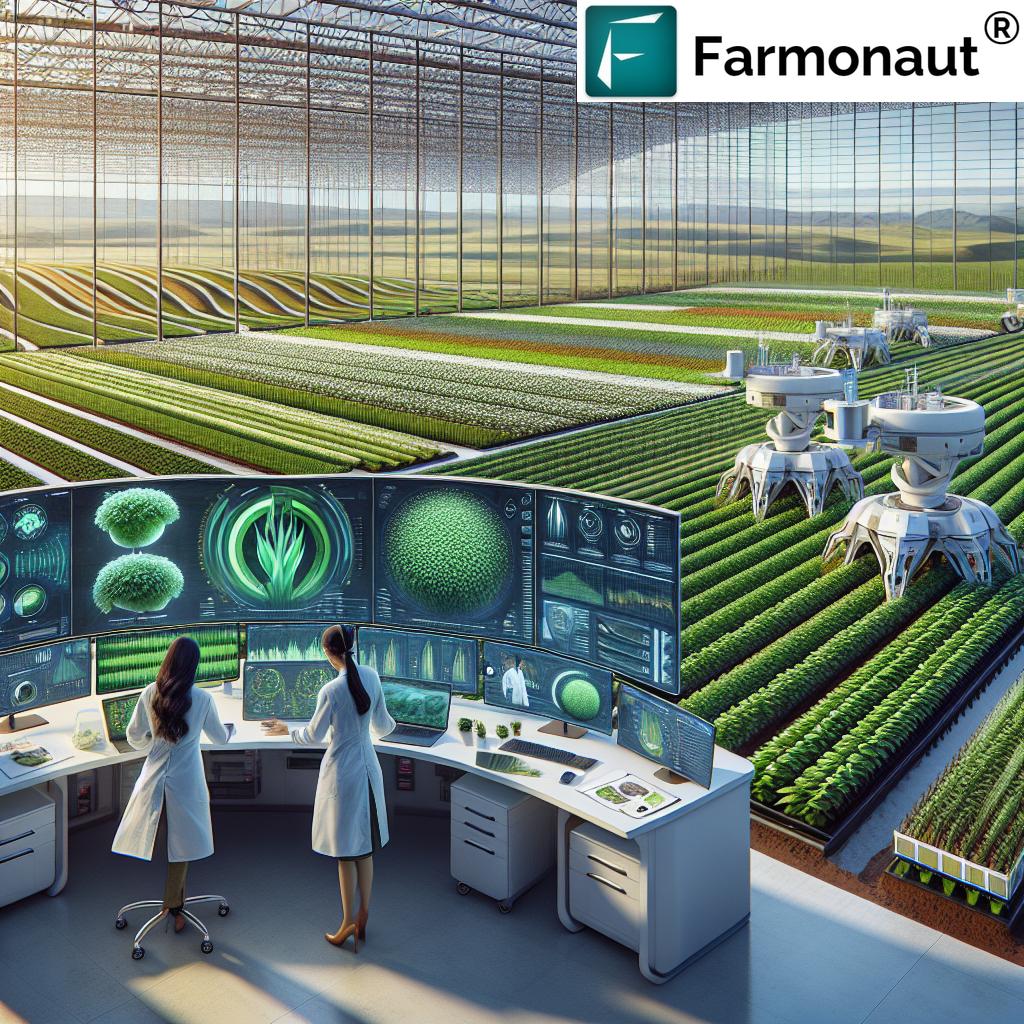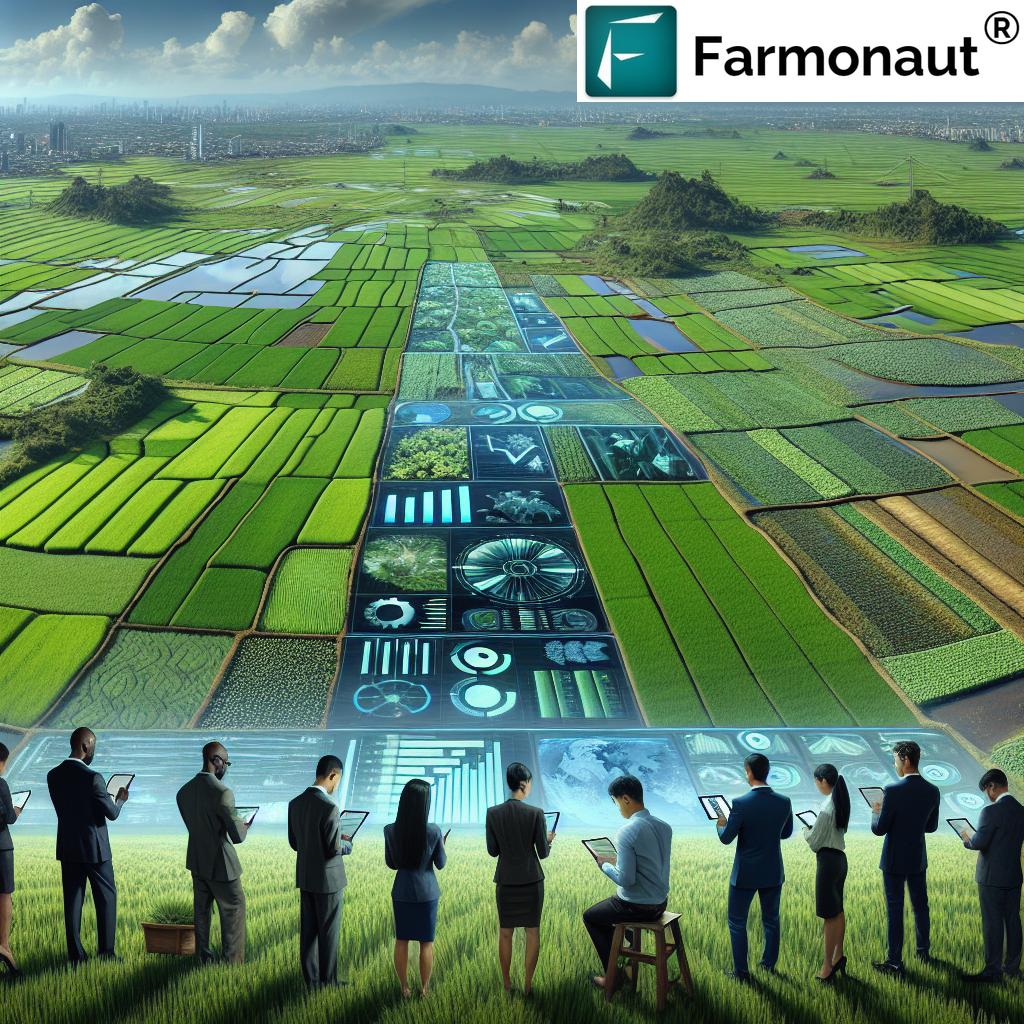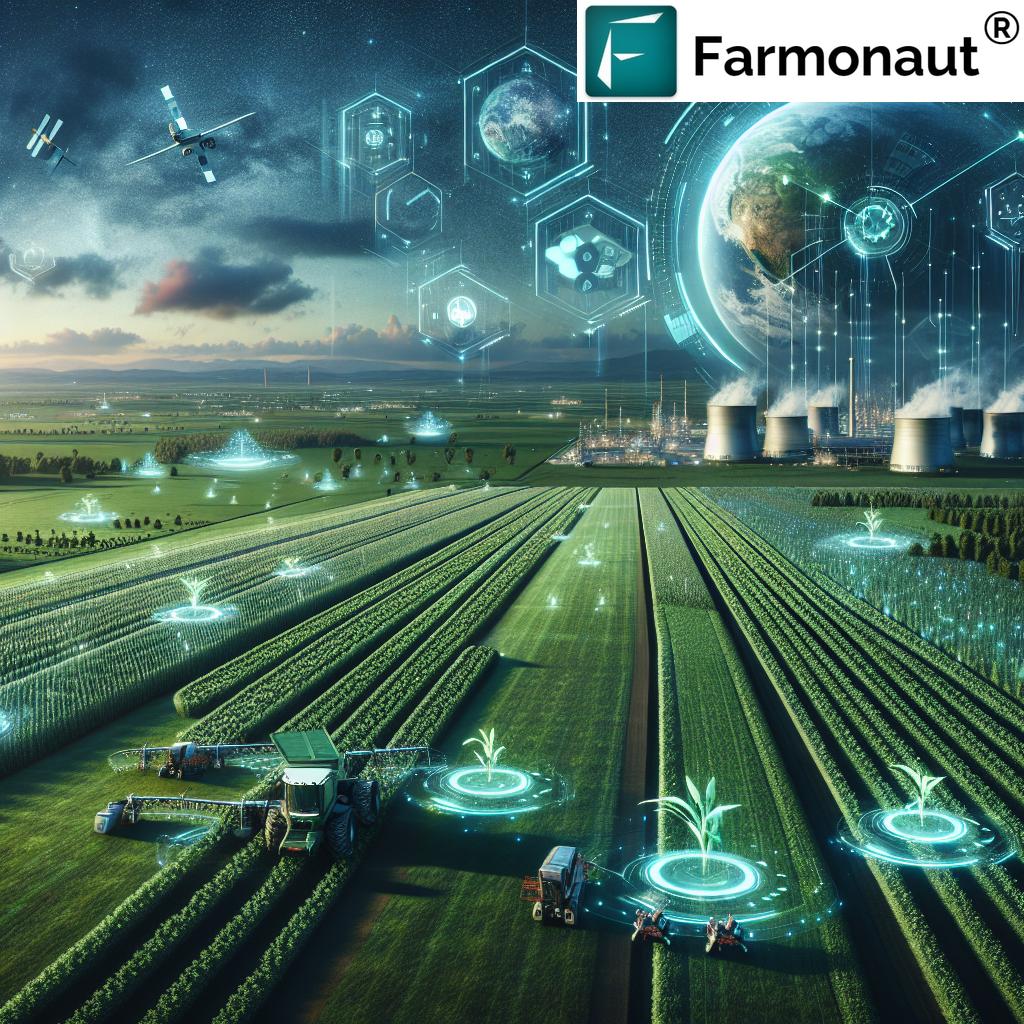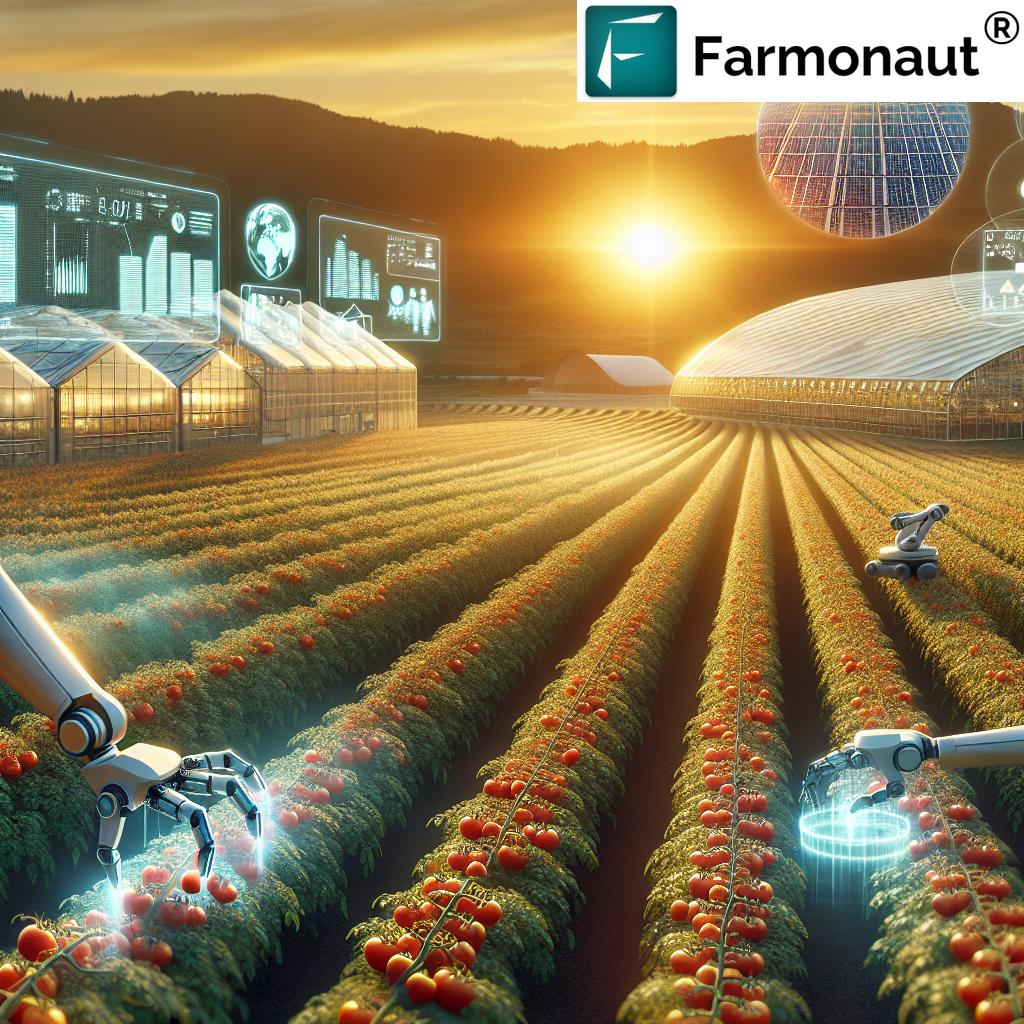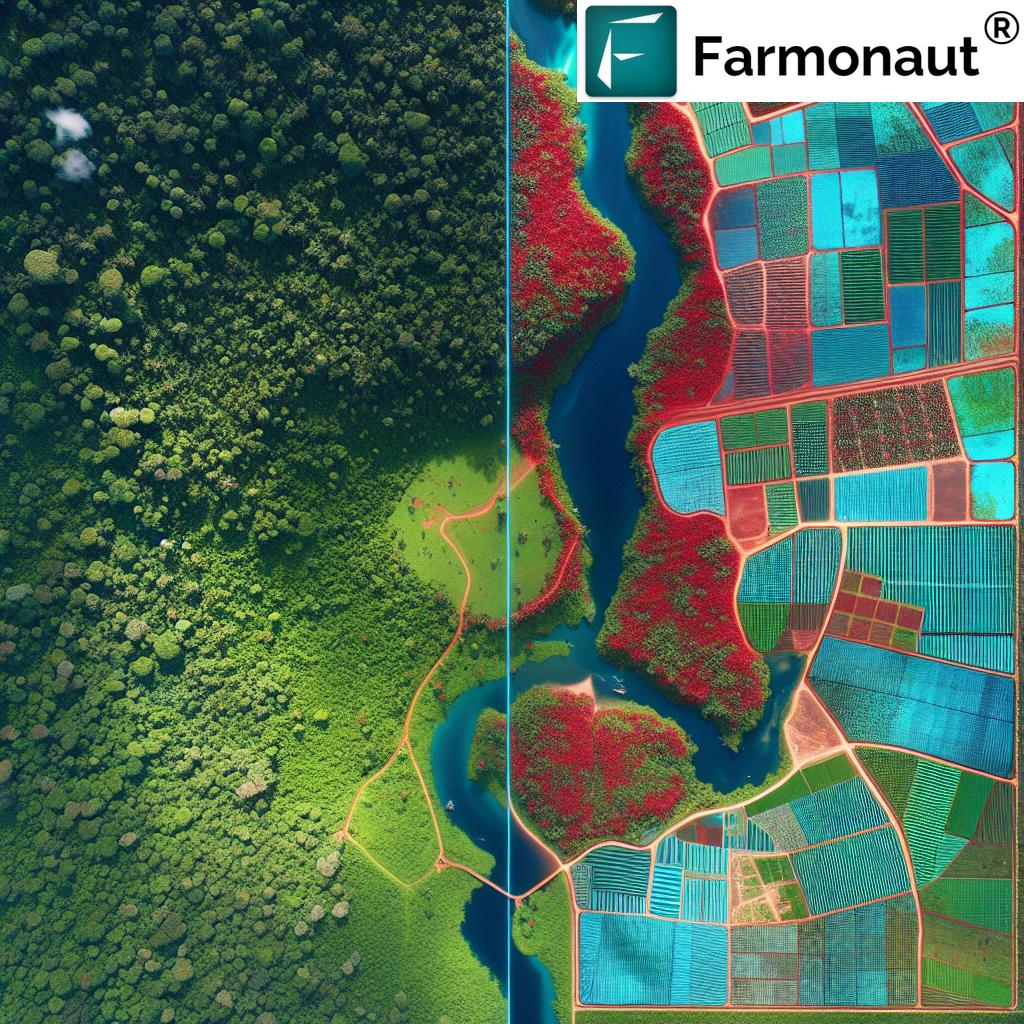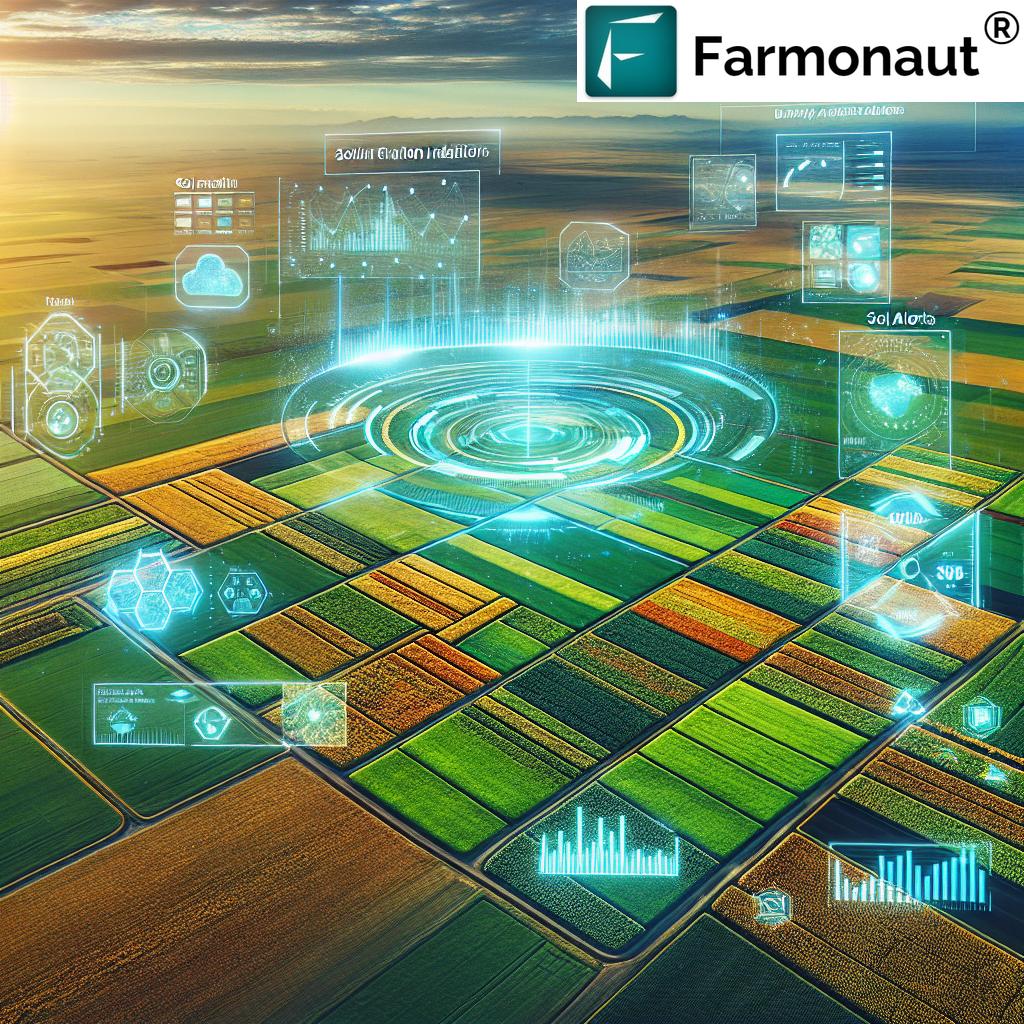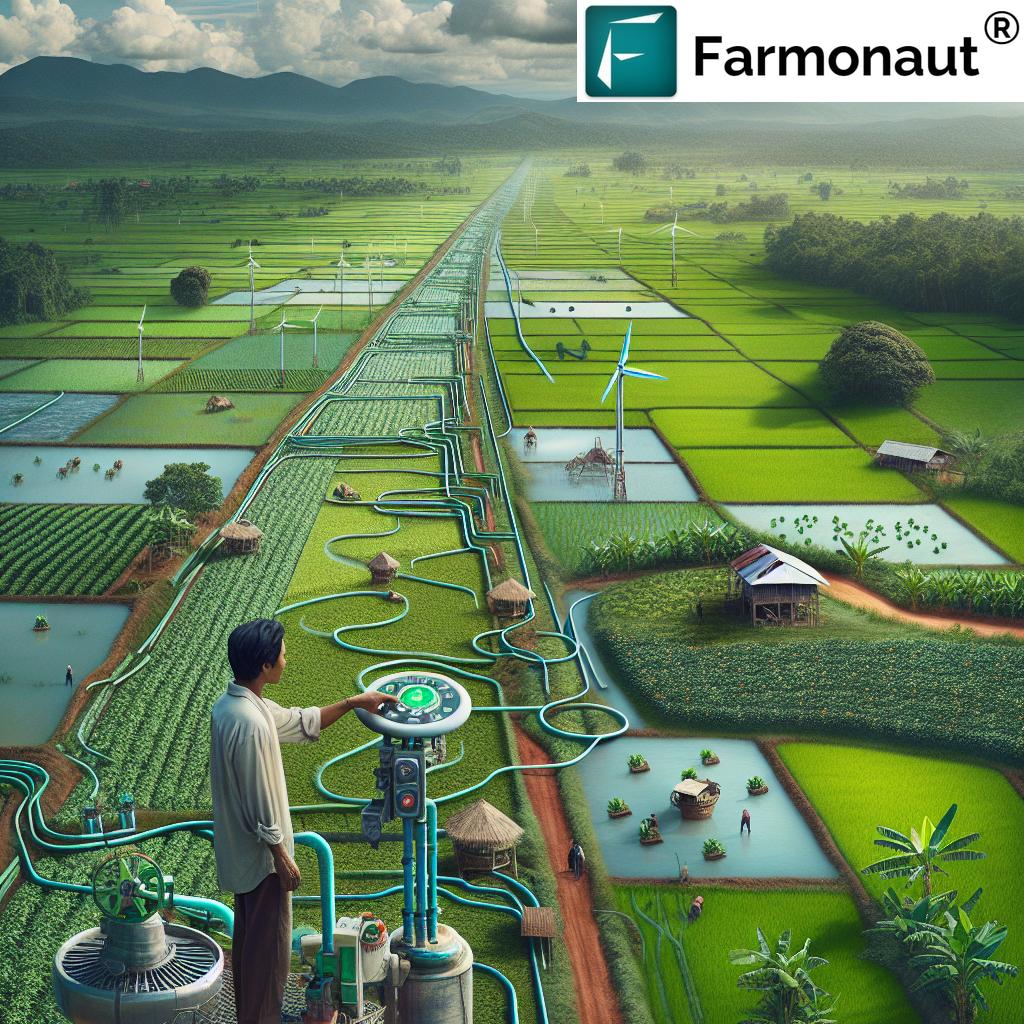Revolutionizing Philippine Agriculture: How Smart Farming Solutions Impact the 2025 Elections
As we approach the 2025 midterm elections in the Philippines, a transformative wave is sweeping across the agricultural landscape. Smart farming solutions and agricultural technology are taking center stage, not just in the fields but also in the corridors of power. This shift towards digital agriculture tools and sustainable farming practices is poised to impact millions of Filipinos, potentially shaping the future of both Philippine agriculture and politics.

“The Rice Competitiveness Enhancement Fund extension impacts over 2 million rice farmers in the Philippines.”
In this comprehensive analysis, we’ll explore how precision agriculture, crop monitoring systems, and other innovative farming technologies are revolutionizing the agricultural sector and potentially influencing the upcoming elections. We’ll delve into recent legislative actions, examine the role of key political figures, and assess the broader implications for rural development and food security in the Philippines.
The Rise of Smart Farming in the Philippines
As we witness the dawn of a new era in Philippine agriculture, it’s crucial to understand the technological advancements driving this change. Smart farming solutions are no longer a distant dream but a tangible reality reshaping the agricultural landscape.
- Precision Agriculture: This technology-driven approach optimizes crop yields by using data analytics to make informed decisions about planting, fertilizing, and harvesting.
- Crop Monitoring Systems: Advanced sensors and satellite imagery provide real-time data on crop health, enabling farmers to address issues promptly.
- Farm Management Software: Digital platforms that streamline operations, from inventory management to financial planning, are becoming increasingly popular among Filipino farmers.
These technologies are not just improving productivity; they’re also addressing long-standing challenges in Philippine agriculture, such as resource inefficiency and vulnerability to climate change.
Legislative Initiatives Shaping Agricultural Technology Adoption
The Philippine government has recognized the potential of smart farming solutions and has taken significant steps to support their adoption. Recent legislative actions reflect a commitment to modernizing the agricultural sector:
- Anti-Agricultural Economic Sabotage Act (RA No. 12022): This law aims to combat agricultural smuggling and impose severe penalties on offenders, protecting local farmers and ensuring fair competition.
- Extension of the Rice Competitiveness Enhancement Fund (RCEF): Now extended until 2031 with increased funding, this initiative provides crucial support to rice farmers, enhancing their competitiveness in the global market.
These laws demonstrate a clear legislative agenda focused on empowering farmers and securing the country’s food supply through technological advancement and strategic support.
The Role of Satellite Imagery in Agricultural Data Analytics
One of the most groundbreaking developments in smart farming is the use of satellite imagery for agriculture. This technology offers unprecedented insights into crop health, soil conditions, and environmental factors affecting farm productivity.
Farmonaut, a leading agricultural technology company, is at the forefront of this revolution. Their satellite-based crop health monitoring system provides farmers with real-time data on vegetation health (NDVI), soil moisture levels, and other critical metrics. This information enables farmers to make informed decisions about irrigation, fertilizer usage, and pest management, ultimately optimizing crop yields and reducing resource wastage.
Explore Farmonaut’s innovative solutions:
The Impact of Smart Farming on Rural Development
The adoption of smart farming solutions is having a profound impact on rural communities across the Philippines. By increasing agricultural productivity and efficiency, these technologies are helping to:
- Boost farmer incomes
- Create new job opportunities in the agritech sector
- Improve food security at both local and national levels
- Reduce the environmental impact of farming practices
As rural areas benefit from these advancements, we’re likely to see a shift in voter priorities and expectations in the upcoming 2025 elections.
“Satellite-based crop monitoring systems could potentially influence voting decisions of 30% of rural Filipinos.”
Political Landscape and Agricultural Reform
As we approach the 2025 midterm elections, key figures in the Philippine government are openly backing initiatives that focus on agricultural technology and smart farming solutions. Senior Deputy Speaker Aurelio “Dong” Gonzales Jr., Deputy Speaker David “Jay-Jay” Suarez, and House Majority Leader Manuel Jose “Mannix” Dalipe have all expressed strong support for legislative measures aimed at modernizing the agricultural sector.
These political leaders, members of the Lakas-Christian Muslim Democrats (Lakas-CMD) party, have praised House Speaker Martin Romualdez for his role in unifying Congress and enabling unprecedented legislative productivity. They’ve highlighted key legislation passed under Romualdez’s stewardship, including:
- The Anti-Agricultural Economic Sabotage Act
- Extension of the Rice Competitiveness Enhancement Fund
- Various measures supporting sustainable farming practices and digital agriculture tools
This focus on agricultural reform and technology adoption could play a crucial role in shaping voter decisions, especially in rural areas where the impact of these initiatives is most directly felt.
The Role of Agricultural Data Analytics in Policy-Making
As we move towards a more data-driven approach to agriculture, the role of agricultural data analytics in shaping policy decisions cannot be overstated. Platforms like Farmonaut’s Jeevn AI Advisory System are providing policymakers with valuable insights into:
- Crop yield predictions
- Resource allocation needs
- Environmental impact of current farming practices
- Potential areas for agricultural expansion
These data-driven insights are enabling more informed decision-making at both local and national levels, potentially leading to more effective and targeted agricultural policies.
Interested in leveraging agricultural data for your projects? Explore Farmonaut’s API:
Farmonaut API
API Developer Docs
Sustainable Farming Practices and Environmental Considerations
The push for smart farming solutions in the Philippines is closely tied to the broader goal of promoting sustainable agriculture. Many of the technologies being adopted, such as precision agriculture and crop monitoring systems, contribute to more efficient use of resources and reduced environmental impact.
Farmonaut’s carbon footprinting feature, for instance, allows agribusinesses to monitor and reduce their environmental impact in real-time. This aligns with global trends towards more sustainable farming practices and could become a key talking point in the 2025 elections, especially among environmentally conscious voters.

The Future of Philippine Agriculture and Its Political Implications
As we look towards the 2025 elections and beyond, it’s clear that the future of Philippine agriculture is inextricably linked with technological advancement and smart farming solutions. The political implications of this shift are significant:
- Candidates who champion agricultural technology and sustainable farming practices may gain favor among rural voters.
- The success or failure of current agricultural initiatives could become a major campaign issue.
- The ongoing development of the agritech sector could lead to new policy priorities and campaign promises.
As the political landscape evolves, the focus on farm management software, rice productivity enhancement, and other smart farming solutions could play a crucial role in shaping the future of both Philippine agriculture and politics.
Challenges and Opportunities in Agricultural Technology Adoption
While the potential benefits of smart farming solutions are clear, their widespread adoption in the Philippines faces several challenges:
- Infrastructure limitations: Many rural areas lack the necessary internet connectivity and power supply for advanced farming technologies.
- Financial constraints: Small-scale farmers may struggle to invest in new technologies without financial support.
- Digital literacy: There’s a need for education and training to help farmers effectively use new digital tools.
- Data privacy concerns: As more agricultural data is collected and analyzed, ensuring data security and privacy becomes crucial.
Addressing these challenges presents opportunities for both technological innovation and policy development. Political candidates who can offer practical solutions to these issues may find strong support among rural voters in the 2025 elections.
The Role of Public-Private Partnerships in Agricultural Innovation
The advancement of smart farming solutions in the Philippines is not solely a government initiative. Public-private partnerships are playing a crucial role in driving innovation and adoption of agricultural technology. Companies like Farmonaut are working alongside government agencies to:
- Develop and implement new farming technologies
- Provide training and support to farmers
- Contribute to policy development and implementation
These collaborations are essential for bridging the gap between technological innovation and practical application in the field. As we approach the 2025 elections, the success of these partnerships could become a key factor in voter sentiment, particularly in agricultural regions.
Impact of Smart Farming Solutions on Philippine Agriculture and 2025 Elections
| Smart Farming Solution | Agricultural Impact | Potential Electoral Influence |
|---|---|---|
| Satellite Imagery | Improved crop monitoring, early detection of issues | Increased support from tech-savvy farmers, potential campaign focus on agricultural modernization |
| Precision Agriculture | Optimized resource use, higher crop yields | Appeal to environmentally conscious voters, emphasis on sustainable farming in rural campaigns |
| Crop Monitoring Systems | Real-time data on crop health, informed decision-making | Potential increase in rural voter engagement, focus on data-driven agricultural policies |
| Farm Management Software | Improved operational efficiency, better financial planning | Appeal to young farmers, potential campaign promises for digital literacy programs |
Looking Ahead: The 2025 Elections and Beyond
As we approach the 2025 midterm elections, the intersection of agricultural technology and politics is becoming increasingly significant. The success of smart farming initiatives and their impact on rural communities could play a decisive role in shaping voter preferences and campaign strategies.
Key factors to watch include:
- The tangible results of current agricultural technology initiatives
- The response of opposition parties to the government’s agricultural agenda
- The emergence of new agricultural issues or technologies that could influence voter sentiment
- The evolving priorities of rural and urban voters in relation to agricultural policy
As the political landscape continues to evolve, the ongoing development of smart farming solutions and their integration into Philippine agriculture will undoubtedly play a crucial role in shaping the country’s future.
Conclusion
The revolution in Philippine agriculture, driven by smart farming solutions and agricultural technology, is set to have a profound impact on the 2025 elections and beyond. As we’ve explored in this comprehensive analysis, the intersection of technological innovation, legislative action, and political strategy is reshaping both the agricultural landscape and the political terrain of the Philippines.
From satellite-based crop monitoring to precision agriculture techniques, these advancements are not just improving farm productivity; they’re potentially influencing voter decisions, especially in rural areas. The success of initiatives like the Rice Competitiveness Enhancement Fund and the adoption of farm management software could become key factors in determining electoral outcomes.
As we look towards the future, it’s clear that the relationship between agricultural technology and politics will continue to evolve. Candidates and parties that can effectively address the challenges and opportunities presented by smart farming solutions may find themselves at a significant advantage in the 2025 elections and beyond.
The future of Philippine agriculture is undoubtedly digital, and as this transformation unfolds, it will continue to shape the political landscape of the nation. As voters, policymakers, and agricultural stakeholders, staying informed about these developments will be crucial in navigating the changing dynamics of Philippine politics and agriculture.
FAQ Section
- Q: How are smart farming solutions impacting Philippine agriculture?
A: Smart farming solutions are revolutionizing Philippine agriculture by improving crop yields, optimizing resource use, and enabling data-driven decision-making. Technologies like satellite imagery, precision agriculture, and farm management software are helping farmers increase productivity and sustainability. - Q: What role does agricultural technology play in the 2025 elections?
A: Agricultural technology is becoming a key issue in the 2025 elections, with political candidates focusing on smart farming initiatives to appeal to rural voters. The success of current agricultural programs and the promise of further technological advancements could significantly influence voter decisions. - Q: How is the government supporting the adoption of smart farming solutions?
A: The Philippine government is supporting smart farming adoption through legislative actions like the Anti-Agricultural Economic Sabotage Act and the extension of the Rice Competitiveness Enhancement Fund. These initiatives aim to combat agricultural smuggling, support farmers, and promote the use of advanced farming technologies. - Q: What challenges does the Philippines face in implementing smart farming solutions?
A: Key challenges include infrastructure limitations in rural areas, financial constraints for small-scale farmers, the need for digital literacy training, and addressing data privacy concerns. Overcoming these challenges is crucial for the widespread adoption of smart farming technologies. - Q: How can farmers access and benefit from smart farming technologies?
A: Farmers can access smart farming technologies through various platforms and apps offered by companies like Farmonaut. These tools provide real-time crop monitoring, AI-driven advisory systems, and resource management solutions. Government programs and public-private partnerships also play a role in making these technologies more accessible to farmers.






